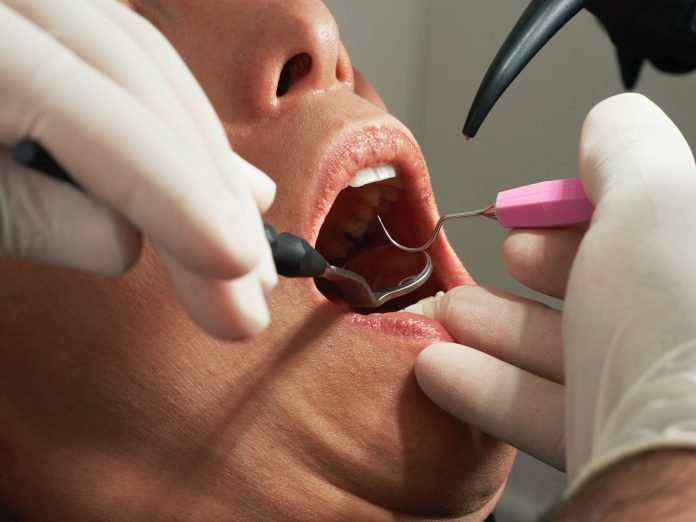
In a new study from Queen’s University, researchers found poor oral health is linked to a much higher risk of liver cancer.
Poor oral health has been associated with the risk of several chronic diseases, such as heart disease, stroke and diabetes.
However, there is inconsistent evidence on the link between poor oral health and specific types of gastrointestinal cancers.
In the study, the team analyzed a large cohort of over 469,000 people in the UK.
They focused on the association between oral health conditions and the risk of a number of gastrointestinal cancers, including liver, colon, rectum and pancreatic cancer.
Models were applied to estimate the links between cancer risk and self-reported oral health conditions, such as painful or bleeding gums, mouth ulcers and loose teeth.
Participants with poor oral health were more likely to be younger, female, living in deprived socioeconomic areas and consumed less than two portions of fruit and vegetables per day.
The team found no strong links between the risk of the majority of cancers and poor oral health, but there was a substantial link to liver cancer.
The biological mechanisms by which poor oral health may be more strongly associated with liver cancer are currently unknown.
One explanation is the role of the oral and gut microbiome in disease development.
The team says the liver contributes to the elimination of bacteria from the human body.
When the liver is affected by diseases, such as hepatitis, cirrhosis or cancer, its function will decline and bacteria will survive for longer and therefore have the potential to cause more harm.
One bacteria, Fusobacterium nucleatum, originates in the oral cavity but its role in liver cancer is unclear. Further studies about the microbiome and liver cancer are therefore warranted.
Another theory in explaining the higher cancer risk due to poor oral health suggests that participants with a high number of missing teeth may alter their diet, consuming softer and potentially less nutritious foods, which in turn influence the risk of liver cancer.
Liver cancer is the sixth bigger cancer killer in the EU, claiming the lives of almost 60,000 people per year. The five-year survival rate for the disease across Europe is just 11% and approximately 9 in 10 cases are in individuals over the age of 55.
It is believed that up to half of cases of liver cancer are preventable, with risk factors often relating to lifestyle, such as overweight or obesity, smoking and alcohol consumption.
If you care about liver health, please read studies about this nutrient supplement may help treat fatty liver disease and findings of even mild fatty liver disease may raise early death risk.
For more information about liver disease prevention and treatment, please see recent studies about Common high blood pressure drugs may reduce inflammation in liver disease and results showing that this statin drug may lower your risk of liver cancer.
The study is published in United European Gastroenterology Journal. One author of the study is Dr Haydée WT Jordão.
Copyright © 2021 Knowridge Science Report. All rights reserved.




